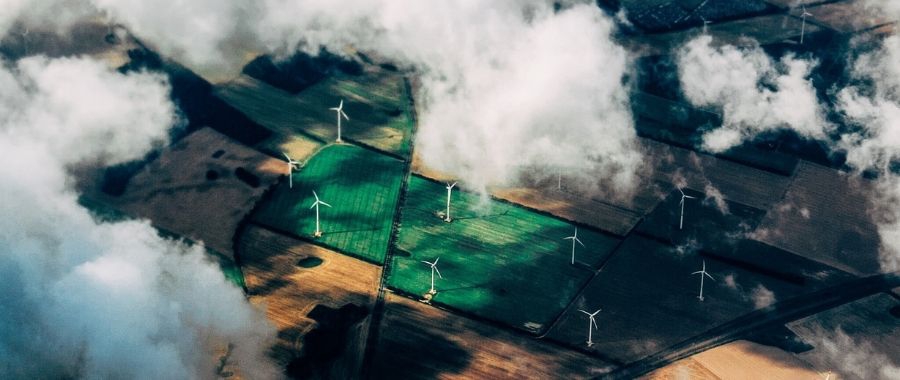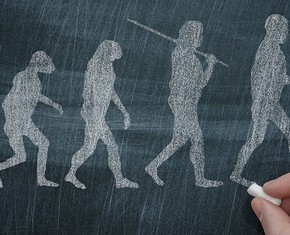The views expressed in our content reflect individual perspectives and do not represent the authoritative views of the Baha'i Faith.
With all the science fiction books and movies out there, you may find yourself dreaming of escaping from this planet and going to other worlds.
Science fiction is full of such stories, often to help us better understand our own human reality on this planet by comparing it with imagined life on other planets.
But while technology has now made the vision of space travel a technical reality, it is also clear that the costs and risks, as well as the inevitable human limitations of time (a lifetime) and speed (much less than the speed of light), mean that only a handful of people could ever realistically go beyond our biosphere.
Some day humans may be able to colonize other planets, but we cannot escape the one we live on now.
This means that, for the foreseeable future, we are stuck on planet Earth and, together with all the other humans here, will have to muddle through with what we have. In all probability, your life quest will take place here on this Earth, within our planetary boundaries.
According to the Baha’i teachings, every dweller on our home planet must recognize “nature’s omnipresent sovereignty” while also acknowledging the human ability to transcend it:
Our planet, the earth, acknowledges nature’s omnipresent sovereignty. The kingdoms of the mineral, vegetable and animal respond to nature’s will and fiat of control. The great bulky elephant with its massive strength has no power to disobey the restrictions nature has laid upon him; but man, weak and diminutive in comparison, empowered by mind which is an effulgence of Divinity itself, can resist nature’s control and apply natural laws to his own uses.
According to the limitations of his physical powers man was intended by creation to live upon the earth, but through the exercise of his mental faculties, he removes the restriction of this law and soars in the air like a bird. He penetrates the secrets of the sea in submarines and builds fleets to sail at will over the ocean’s surface, commanding the laws of nature to do his will. All the sciences and arts we now enjoy and utilize were once mysteries, and according to the mandates of nature should have remained hidden and latent, but the human intellect has broken through the laws surrounding them and discovered the underlying realities. The mind of man has taken these mysteries out of the plane of invisibility and brought them into the plane of the known and visible. – Abdu’l-Baha, The Promulgation of Universal Peace, p. 351.
So while we can certainly break through nature’s inherent restrictions, the Earth’s resources are ultimately finite, which places limits on how we can grow and flourish. The more people there are on this planet, the more we have to learn to share and consider others as well as ourselves. In this stage of our metaphorical and spiritual journey through life, we all have to join the collective effort to confront these environmental constraints and find ways to overcome them.
In most cases, science has already told us what needs to be done to solve the world’s environmental crises. It is not possible to exhaust all the possibilities – as human imagination and creativity are without limit and new discoveries cannot be anticipated – so we can, at least, reassure ourselves that solutions do exist. The impediments are not scientific but human, and therefore not beyond human possibilities.
At the same time, you can play your part by adopting a responsible and sustainable lifestyle for yourself and encouraging others around you to do the same.
The threats are largely of our own making. Environmental problems may seem like a recent development for humanity, or at least they used to be largely invisible relative to other priorities for human survival. Their emergence is due in large part to the extremely rapid expansion of the human population over the last two centuries, and technological developments that have accelerated our consumption of resources and our impacts on the planet – which have now surpassed natural processes in their significance.
We have hit planetary limits, with the potential for what is called “overshoot and collapse.” In population ecology, overshoot and collapse is a well-studied phenomenon: a population that escapes from natural controls with regard to its numbers continues to multiply until it destroys its food supply, or some other vital resource, at which point its numbers collapse, or it may disappear entirely. This can happen when a species is introduced into or invades a new ecosystem without the necessary enemies and parasites that provide natural population controls.
Since our quest is one of hope, of replacing negative ways with something better, we all need to look at the alternatives to overshoot and collapse at a planetary scale.
Research groups that prepare global scenarios for the United Nations and other organizations have also explored alternative possible futures across the political spectrum, from “business as usual” – with no economic or social changes – to countries closing their borders and retreating to some kind of fortress society that keeps others out, to a collective transition towards a sustainable future.
These scenarios tend to show the unsustainability and vulnerability of our present forms of development, but they also demonstrate that a transition which avoids the worst of the problems is technically possible. Some take a positive view that the necessary transition is an opportunity to build a more sustainable civilization, and whole groups of researchers, such as the Great Transition Initiative, have been working on how this could be done.
The Baha’i Faith has called for this transition to a global society since it began in the mid-1800s:
Blessed and happy is he that ariseth to promote the best interests of the peoples and kindreds of the earth. … It is not for him to pride himself who loveth his own country, but rather for him who loveth the whole world. The earth is but one country, and mankind its citizens. – Baha’u’llah, Tablets of Baha’u’llah, p. 167.
The whole earth is one home, and all peoples, did they but know it, are bathed in the oneness of God’s mercy. – Abdu’l-Baha, Abdu’l-Baha in London, p. 38.
As a species, humanity is leaving our collective adolescence, and as we grow into adulthood we must find more mature solutions to resource limits than conflict.
Arthur Lyon Dahl’s new book In Pursuit of Hope, A Guide for the Seeker, published by George Ronald Books, is available here.
















Comments
Sign in or create an account
Continue with Googleor